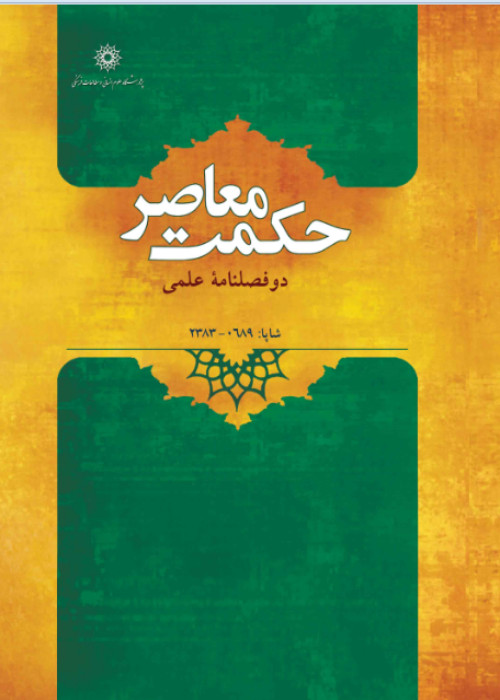Martyr Motahhari on the Ethics of Belief
Author(s):
Abstract:
The term of ethics of belief is appeared for the first time in Clifford''s well-known essay by the same title in 1876. According to Clifford''s saying that became known afterwards as Clifford''s Credo or Principle «It is wrong always، everywhere، and for anyone، to believe anything upon insufficient evidence». This debate from the time of its presentation by Clifford has been the subject of different controversies. The main problem behind these controversies was that whether human beliefs are principally under the will of human beings to be evaluated morally or they are، like many of mental states، involuntary and passive and so excused of any moral evaluation. Some say that our beliefs are involuntary and are not under our control. In contrast، some believe in the impact of the will on our beliefs or the doxastic voluntarism. Depending on the amount of influence of the will on our beliefs، doxastic voluntarism is divided into two general kinds: direct voluntarism and indirect voluntarism. The doxastic voluntarism (direct/indirect)، on the other hand، can divide into descriptive voluntarism and normative voluntarism. In normative voluntarism، we can say about a kind of epistemic deontologism in our beliefs and it is this epistemic deontologism that entails the ethics of belief. In effect، only when we can say about the ethics of belief that we believe in the epistemic deontologism in our beliefs. Martyr Motahhari believes that the reasoning (ta‘aqqul) and the thinking (tafakkur) as mental actions are in direct control of our will. For him، there is a difference between opinion (‘aqida) and thinking (tafakkur). In his view، thinking is the opinion based on a rational process which can bring about the knowledge. Taking in consideration the process of forming knowledge from him، shows that he believes in a kind of epistemic deontologism. Thus he gives some advices about the ways of acquiring the knowledge that we can place them under the title ethics of belief such as avoidance of intellectual stagnation، distinguishing between belief and the owner of belief and like that.
Keywords:
Language:
Persian
Published:
Journal of Hekmat e Mo'aser, Volume:3 Issue: 5, 2012
Pages:
119 to 140
magiran.com/p1188248
دانلود و مطالعه متن این مقاله با یکی از روشهای زیر امکان پذیر است:
اشتراک شخصی
با عضویت و پرداخت آنلاین حق اشتراک یکساله به مبلغ 1,390,000ريال میتوانید 70 عنوان مطلب دانلود کنید!
اشتراک سازمانی
به کتابخانه دانشگاه یا محل کار خود پیشنهاد کنید تا اشتراک سازمانی این پایگاه را برای دسترسی نامحدود همه کاربران به متن مطالب تهیه نمایند!
توجه!
- حق عضویت دریافتی صرف حمایت از نشریات عضو و نگهداری، تکمیل و توسعه مگیران میشود.
- پرداخت حق اشتراک و دانلود مقالات اجازه بازنشر آن در سایر رسانههای چاپی و دیجیتال را به کاربر نمیدهد.
In order to view content subscription is required
Personal subscription
Subscribe magiran.com for 70 € euros via PayPal and download 70 articles during a year.
Organization subscription
Please contact us to subscribe your university or library for unlimited access!


